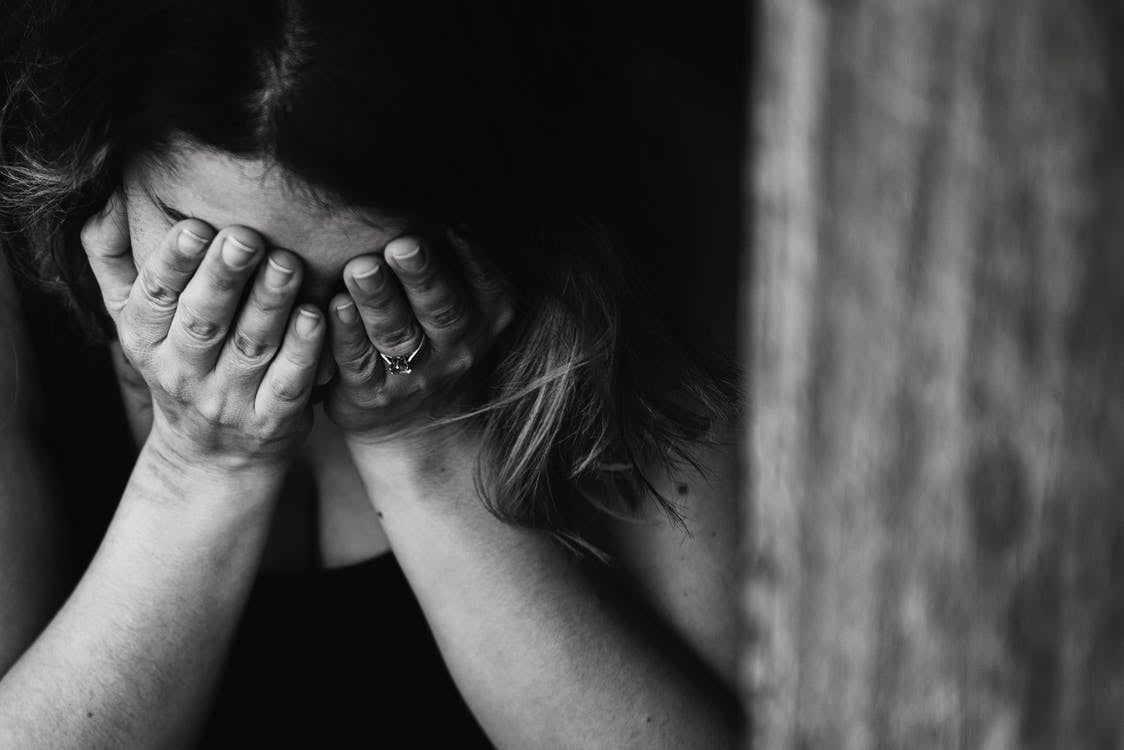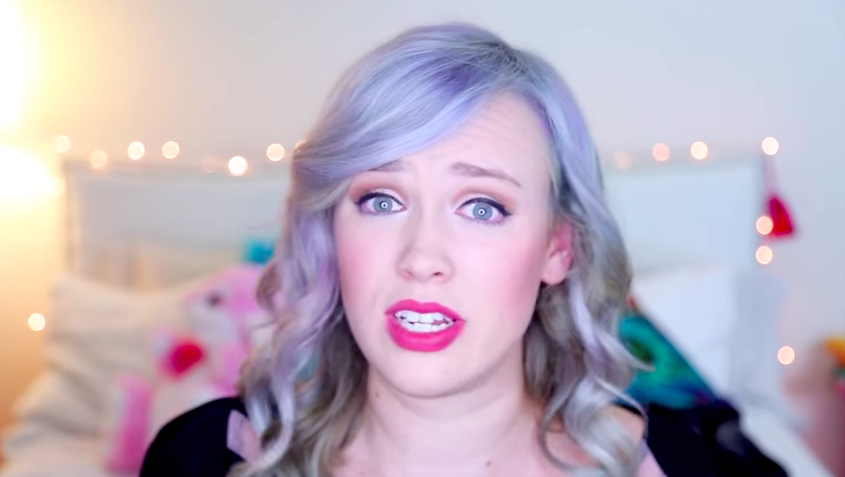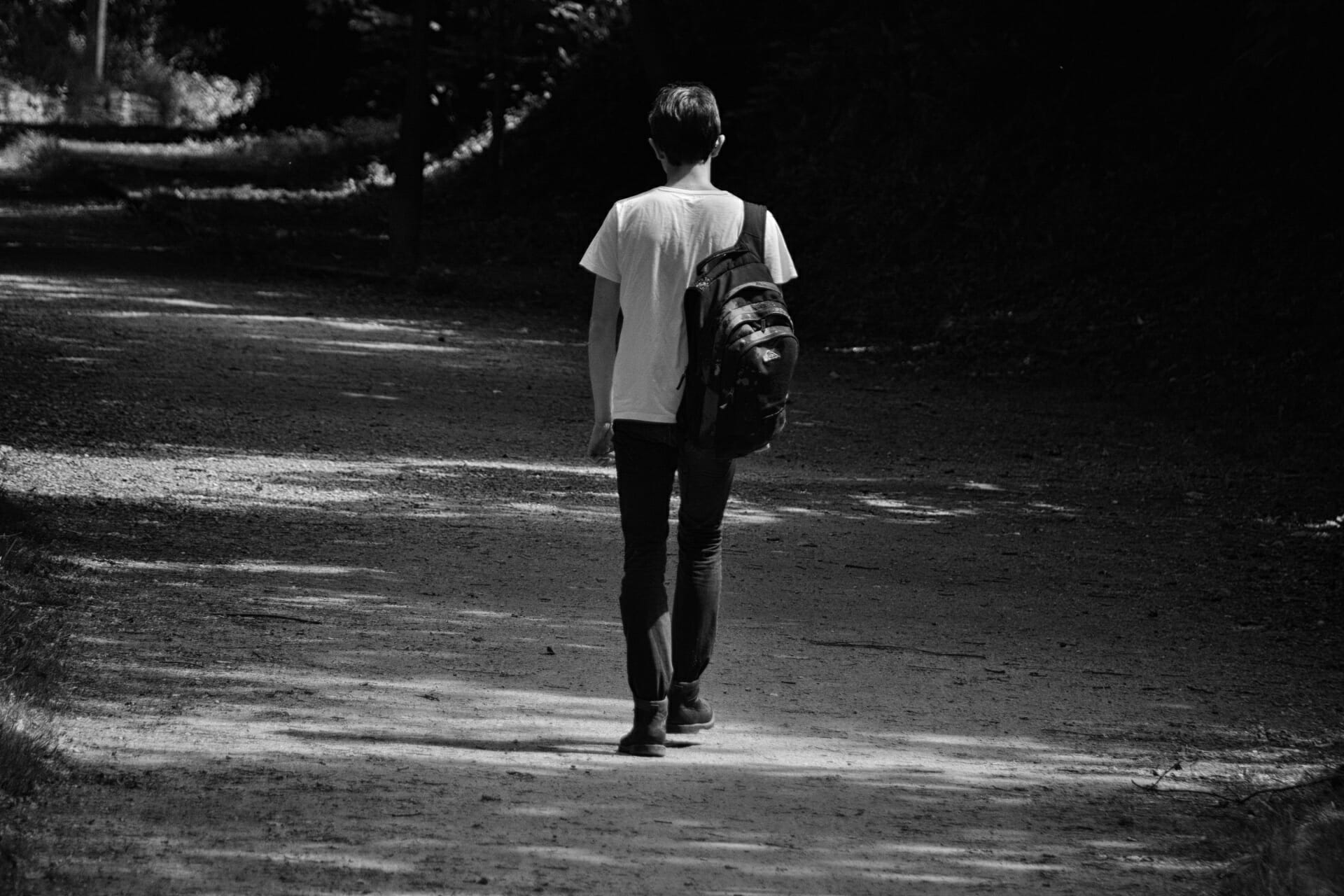When you feel awkward in a social situation, your brain and body can react in a way that prevents you from communicating your true feelings and showing your real personality. In these moments, maybe you find yourself frustrated, wondering why social interactions seem to come so easily to others. But it’s rarely a question of how to not be awkward. Rather, it’s about figuring out what it is that makes you feel anxious.
Even though feelings of awkwardness will arise, they don’t have to swallow you whole. The Daily Dot spoke with a therapist associate, a psychiatric physician’s assistant, and a YouTuber on how to feel reassured, grounded, and less socially awkward.
How to not be socially awkward
Psychiatric physician assistant Scot Flynn told the Daily Dot that social anxiety is associated with fear. It might be a fear we have of looking silly, what we’re wearing, what we look like, what we say, or how we feel we’re being perceived at the moment.
Physical manifestations of this fear can come out in behaviors such as looking away, stuttering, shakiness, hair pulling and adjusting, staring at a cell phone out of avoidance, nail-biting, or even more harmful behavior like binge-drinking to avoid feeling awkward.
According to Flynn, you can come across as socially awkward—or perceive yourself as being awkward—in many social situations without having any serious anxiety resulting from it. While awkwardness is a feeling a person experiences for a period of time or even a fleeting moment when they don’t know how to act in a situation, the temporary worry eventually passes, Flynn said.
Social anxiety, however, is an escalation and reoccurrence of these feelings, a brain reaction which can consume our thoughts and paralyze us socially.
“Anxiety is a whole other ball game,” Flynn said.
According to Social Anxiety Institute, those with social anxiety are constantly beating themselves up for the way they act in social settings. The institute said these feelings can become a “vicious cycle of anxiety—the over-thinking, over-analyzing, worrying, and anticipatory anxiety”—and that these reoccurring thoughts can reinforce social anxiety and result in some degree of depression.
If you experience high levels of anxiety, there are many resources available for support groups and help from medical professionals. Here are just a few tips for dealing with awkwardness and the onset of social anxiety.

1) Breathe
One simple way to cope with feelings of awkwardness, or its escalation to the point of anxiety, is to simply breathe.
“Breathe,” Flynn said. “Breathe, watch, listen. And try not to focus on the fact that you’re sweating. Try not to focus on the fact that your tongue feels like it’s twisted. Try not to focus on your heart that’s beating really really fast or your hands that might be shaking. But just breathe. Try to relax, and just listen.”
READ MORE:
- What exactly is seasonal affective disorder?
- 4 ways to get out of a toxic relationship
- A plain and simple guide to understanding consent
- The best self-care tips and ideas
2) Look into self-help books or motivational videos
YouTuber Annie Bardonski revealed her social anxiety on her channel OhhMyAnnie two years ago and said she was often called “Awkward Annie” by her classmates.
“In high school, my first boyfriend would get so irritated because I would always make him order for me because I couldn’t talk to the waiter,” Bardonski told the Daily Dot.
The YouTuber said she has since overcome the worst part of her social anxiety. Still, she often feels like she’s giving off rude or standoffish vibes to strangers because she’s a quiet, introverted person.
“[Social anxiety] has held me back a lot, because people don’t get who I really am and they don’t get that connection with me,” Bardonski said. “It’s also difficult for me because, at times when I do warm up to people, I am very outgoing. But that first opinion of a person sticks.”
Bardonski said she has best dealt with her anxiety by using self-help books. Her best advice for those who deal with the same problem? Avoid following Instagram models and those who manifest a perfect profile, and instead use social media (and books!) as a positive tool to teach yourself techniques to better handle your anxiety.
“This might not help right in the moment, but my biggest advice is to always look into self-help books or videos because that’s what has helped me the most,” Bardonski said. “If you actually take the time and hours to research and read and really develop those tools, then that will help a lot better than just one word of advice.”
Of course, advice should be, if not from medical professionals, a credible, experienced source whose intent is to help, not perpetuate the problem.

3) Pay attention to your physicality
Licensed marriage and family therapist associate Lindsey Rodriguez said if you feel awkward in a social interaction, purposefully try to head-nod and make eye contact with the person as they speak, even if you have trouble listening. For those who can’t help but fidget during a conversation, try putting your hands in your pockets. It might help to fidget with a paper clip or small object. This action is out of sight and reduces stress, Rodriguez said.
Those experiencing more heightened stress can try exercises associated with “grounding,” a technique which helps keep a person present, Rodriguez said.
“Try to almost make a space within yourself,” Rodriguez said.
You can do this by taking deep breaths, counting to 10, or thinking about a time when you felt peaceful. It’s easy to practice all of these techniques without removing yourself from the situation. But if none of them work, excuse yourself from the situation to remind yourself that you have a way out, Rodriguez said.
READ MORE:
- Breaking down the difference between gender identity and sex
- Trans and nonbinary people explain what gender dysphoria feels like
- The reason why IUDs are so popular right now
- Lucid dreaming is real—so why not control your fantasies?
4) Remember that you aren’t alone
You know those people at social gatherings who seem to effortlessly work a room with their magical personalities? Flynn says it’s important to remember that you’re not the only one asking how to not be awkward. Everyone else might deal with just as much, if not more, anxiety as you do.
“This is kind of a strategy that coincides with that whole ‘Imagine everybody in their underwear’ type of thing,” Flynn said. “But just remember practically everybody else around you has the same sort of anxiety.”
“Practically everybody” isn’t everyone, however. Rodriguez said social awkwardness might be something minor that you can work through on your own. Real problems arise when that awkward feeling becomes anxiety and starts to affect your everyday life.
“If it starts to get where you can’t leave your house because you are so anxious, that’s the point when it becomes clinical and a time to seek treatment,” Rodriguez said.
Flynn says there are also safe and effective antidepressants available that medical professionals can asses for and recommend to patients with heightened anxiety and depression.

Flynn said social anxiety is a disorder that can’t simply be “practiced” out of your brain. But overcoming awkwardness is a skill that we can all hone, simply by interacting with as many other “human creatures” as we can.
“It’s really a skill that you have to develop over time,” Flynn said. “It doesn’t come easy.”
5) Practice makes perfect
Social awkwardness can also be situational. Even if you don’t have anxiety, it’s normal to feel a heightened sense of awkwardness when entering uncomfortable territory, like a job interview or a first date. These feelings, according to Rodriguez, come from both the fear of not getting the desired outcome and a fear of embarrassment. For instance, if you’re afraid of heights to the point that all you can do is focus on not vomiting, you might not act like your regular self at a theme park.
“If you want a date to go really well because you think you might have a future with that person, then you have a lot of pressure to succeed, which causes anxiety,” Rodriguez explained.
Flynn’s personal advice to his patients who do struggle with acceptance and perception is that practice makes perfect.
“I often work with young men who really struggle to talk to women,” Flynn said. “What I tell them is simple. Go and do it, go talk to them no matter how silly you feel. No matter how foolish you think you look, do it. Then do it again, and then the next night go introduce yourself to three people. And you’ll find that over time, it’s going to get better and better.”

If you are a teen dealing with depression or other mental health issues, see PBS.org for a list of resources and organizations that can help you. If you are an adult, see Mental Health Resources.
Editor’s note: This article is regularly updated for relevance.


